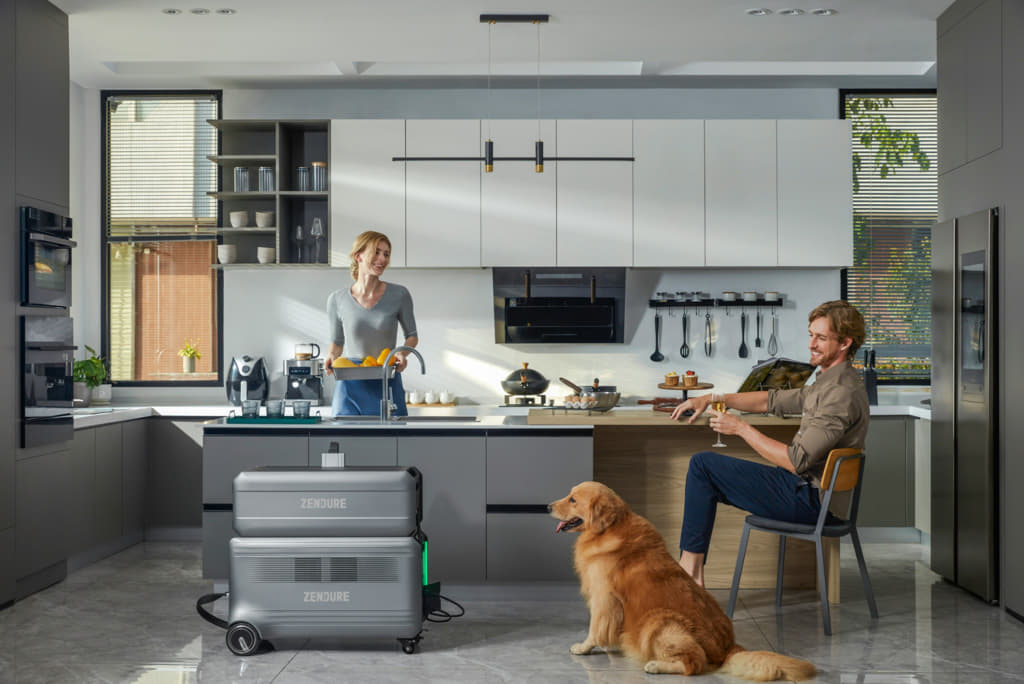
Choosing the Ideal Generator for Refrigerator: Power Outage Solutions
A power outage shouldn’t spoil your food. Selecting the right generator for refrigerator is crucial for keeping things cool. This article will help you understand the specific power demands of your fridge and introduce you to the generator types that can meet those needs. Learn the essentials for safeguarding your perishables with minimal hassle and maximum efficiency.
Key Takeaways
-
Understanding your refrigerator’s power requirements, including running and starting watts, is crucial to choosing the right generator and avoiding electrical overload.
-
There are three main types of generators suited for refrigerators: inverter generators for quiet and fuel-efficient operation, portable generators for mobility and ease of use, and battery generators for an environmentally friendly and noiseless power supply.
-
When selecting a generator, consider key factors such as size to match your fridge’s wattage needs, fuel type for efficiency and safety, and noise level for residential comfort, while ensuring proper installation, use, maintenance, and adherence to safety precautions to prevent hazards.
Understanding Refrigerator Power Requirements
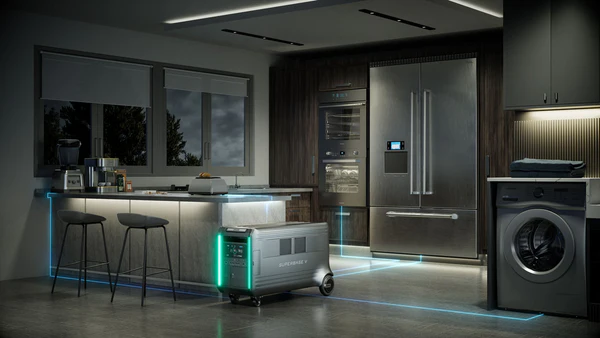
Understanding the power requirements of your refrigerator is the first step in selecting the ideal generator. Knowing how much power your refrigerator needs helps avoid electrical overload and ensures that you choose a generator capable of handling the appliance’s needs. The power requirements of a refrigerator are typically measured in running and starting watts.
Running Watts
The term ‘running watts’ refers to the continuous power needed by an appliance during normal operation. For refrigerators, this typically ranges from 300 to 800 watts. However, the real energy use of a refrigerator is often lower than the stated average wattage due to the fridge cycling on and off throughout the day, which affects its average power consumption. This is why, despite the higher figures, the actual usage of a refrigerator often boils down to a much lower figure of about 180 watts.
Starting Watts
Starting watts, on the other hand, refer to the extra power required at startup. This is particularly important for appliances with motors, like refrigerators, which require more power during startup than during standard operation. In the case of refrigerators, they typically require between 1,000 to 2,000 starting watts to fire up the compressor. This surge of power is temporary but should be taken into account when choosing a generator.
Electricity Usage of Refrigerators and Freezers
When considering the combined electricity usage of refrigerators and freezers, it’s important to note they use between 100 and 800 amps per hour. To ensure both appliances run smoothly without any interruptions, a generator that can deliver at least 2,000 starting watts is recommended. This capacity will adequately cover the initial power surge required by both the refrigerator and the freezer, preventing any potential electrical issues.
By comprehensively understanding both the running and starting watts, as well as the overall electricity usage, you can make an informed decision when selecting a generator that meets your household's needs.
Calculating Total Power Needs
When it comes to refrigerator generator sizing, a good rule of thumb is to multiply the running watts by 3 to get the starting watts. This helps account for the initial surge of power required to start the refrigerator, which is typically higher than its running wattage.
To prevent overloading your generator, be sure to consider both the running and starting watts. For safe operation, ensure the total wattage of all appliances does not exceed 80% of the generator’s capacity.
By following these guidelines, you can effectively manage your generator's load and avoid any potential issues. Remember, it's crucial to balance the power needs of all your appliances to ensure smooth and efficient operation.
Types of Generators Suitable for Refrigerators
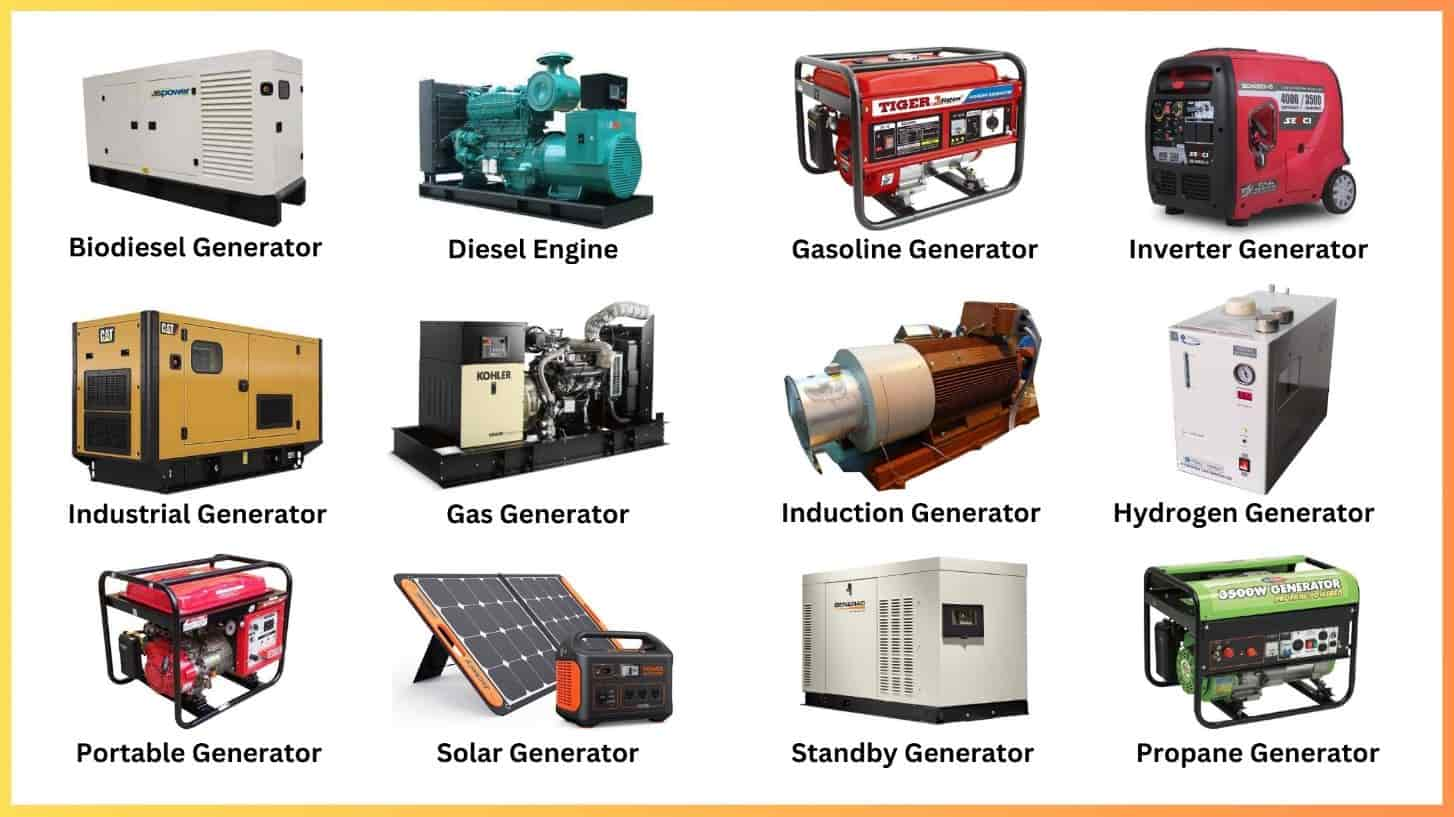
Once you understand the power needs of your refrigerator, you can start looking at the types of generators that could meet those needs. There are four main types of generators that are suitable for refrigerators: inverter generators, portable generators, standby generators, and battery/solar generators. Each type has its own advantages and can be the right choice depending on your specific needs and circumstances.
Inverter Generators
Inverter generators are popular choices for powering refrigerators and other sensitive electronics due to their:
- Quiet operation
- Fuel efficiency
- Lower noise levels compared to traditional generators
- Portability
These features make them less disruptive for residential use and add to their appeal. Inverter generators are the whisperers in the boisterous crowd of power suppliers, providing a gentle hum instead of a roaring racket. This makes them particularly suitable for neighborhoods where keeping the peace is as important as keeping the lights on. Their fuel efficiency is a wallet-friendly feature, ensuring that your emergency power solution doesn't guzzle gas like a thirsty giant. Moreover, the portability of inverter generators allows for a quick and easy setup, which is critical during unexpected outages, ensuring that your ice cream stays frozen and your leftovers remain chilled.
Additional Benefits of Inverter Generators for Home Backup:
- Reliability: Inverter generators are known for their dependable performance, making them a trustworthy option during power outages.
- Pure Sine Wave Production: These generators produce a pure sine wave, which is essential for safely running sensitive electronic appliances and devices that we use in our homes every day.
In summary, the combination of quiet operation, fuel efficiency, portability, reliability, and pure sine wave production makes inverter generators an ideal choice for home backup power. Whether you're navigating a sudden blackout or preparing for a storm, these generators provide a seamless and efficient solution to keep your household running smoothly.
For those looking to keep their refrigerator and other home appliances running smoothly, the Pulsar PGDA70BISCO 7,250-Watt Super Quiet Dual Fuel Inverter Generator and the Cummins Onan P4500i Inverter Generator are excellent choices worth considering.
Portable Generators
Portable generators are a good choice if you’re looking for mobility and ease of use. They can be easily transported and positioned where needed to power appliances during power outages. If noise is a concern, propane generators, a subtype of portable generators, are particularly noted for producing very little engine noise, making them favorable for residential use. If looking for a propane generator that can power a refrigerator check out the ALP 1000W Propane Generator as it can power most standard refrigerators when you are in a pinch.
The Simpson PowerShot 5500W Portable Generator with CO Monitor and the Pulsar PG6580BCO 6,580-Watt Dual-Fuel Portable Generator are excellent choices for powering a refrigerator during a power outage.
Standby Generators
Standby generators offer a seamless backup power solution for refrigerators and essential home devices. Permanently installed and automatically activated during outages, they provide uninterrupted power and handle a home’s full electrical load. While they require a higher initial investment and regular maintenance, standby generators ensure food safety and peace of mind during extended power losses.
When considering standby generator models that are perfectly suited for powering your refrigerator or the entire home, the Briggs & Stratton 18kW PowerProtect Home Standby Generator and the Cummins Quiet Connect 17kW Home Standby Generator stand out as excellent choices.
Battery Generators
Battery generators, also known as solar generators, are another excellent option for powering refrigerators. They have several advantages:
-
They’re environmentally friendly
-
They’re noiseless
-
They’re safe for indoor use, eliminating the risk of carbon monoxide accumulation
-
They can be recharged via an electrical outlet, using solar panels, or even a gas-powered inverter, providing versatile recharge options
There are several solar generators in this range that can be used to power a refrigerator and other home appliances during an outage. Check out the following options below:
- The Anker SOLIX F2600 Portable Power Station
- The EcoFlow Delta Pro Portable Power Station
- Mango Power E Home Backup and Portable Power Station
- BLUETTI EP900 + B500 Home Battery Backup
- Zendure SuperBase V4600 Power Station
Key Features to Consider When Choosing a Generator for Your Refrigerator
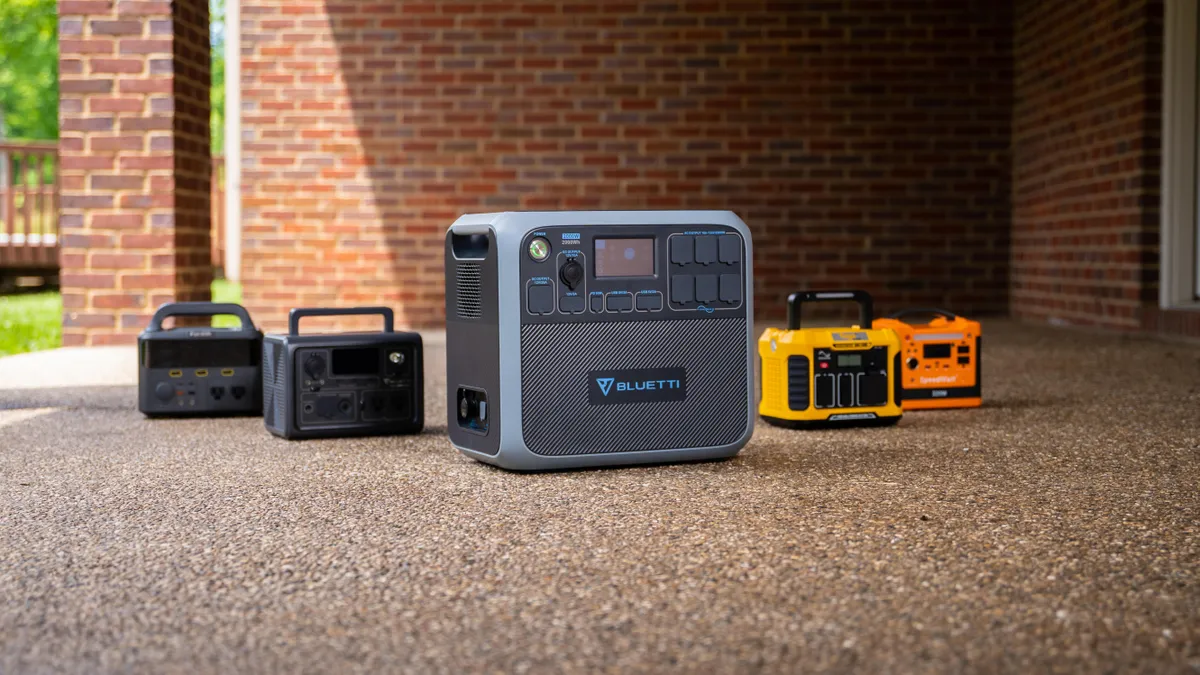
Now that we’ve discussed the different types of generators and their suitability for refrigerators, it’s important to delve into the key features you should consider when choosing a generator for your refrigerator. These features include the size of the generator, the type of fuel it uses, and its noise level.
Generator Size
The size of a generator is a crucial factor to consider. A generator that’s too small may not be able to start and run a refrigerator due to insufficient surge power. To avoid damaging your refrigerator and incurring unnecessary fuel expenses, ensure the generator you choose has enough capacity to handle your refrigerator’s wattage requirements.
An oversized generator can lead to inefficiency and unnecessary fuel expenses. Understanding the size generator capacity is essential as it dictates how many devices, including a refrigerator, can be powered at once without risking overload.
Fuel Type
The type of fuel a generator uses is another critical factor to consider. Generators typically use either diesel or gasoline as fuel options. Diesel generators are suitable for large kW applications and emergencies due to their cost efficiency and less flammable nature.
On the other hand, gasoline is a common choice for residential backup power and is popular with portable generators used to power refrigerators, while battery backup systems offer an alternative solution.
Noise Level
The noise level of a generator can be an important consideration, especially for residential use where excessive noise can be disruptive. Inverter generators and propane-fueled generators are typically quieter than conventional generators, making them suitable options if noise is a major concern.
Proper Installation and Usage Tips for Generator-Powered Refrigerators
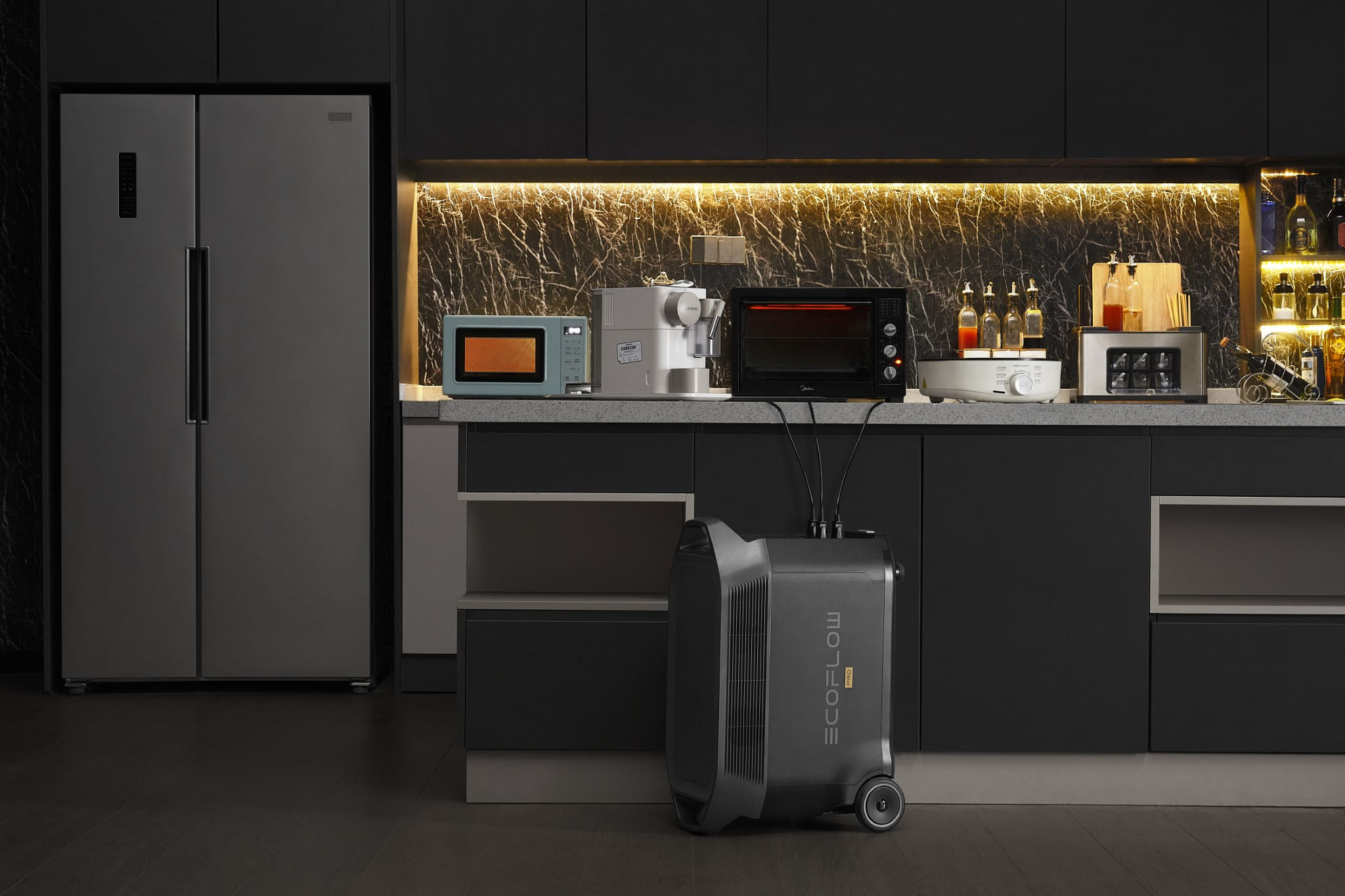
Once you’ve chosen the right generator for your refrigerator, it’s important to understand how to properly install and use it. This includes knowing how to use appropriate extension cords, managing generator load, and following safety precautions.
Extension Cords and Plugging
When connecting your generator to your refrigerator, follow these steps:
-
Use heavy-duty, outdoor-rated extension cords with a wattage or amp rating at least equal to the total appliance loads.
-
If the generator is set up at a distance from the refrigerator, use a #12 gauge (20 amp) extension cord to mitigate voltage drop.
-
Always ensure the entire extension cord is free of damage and has all three prongs, including a grounding pin, to protect against electrocution.
Avoid using extension cords incorrectly with large appliances as this can contribute to generator overloading and result in overheating and potential fire hazards.
Load Management
Managing the load on your generator is key to preventing overloading and ensuring efficient operation. Prioritize critical appliances like refrigerators and medical equipment and stagger the use of high-energy appliances instead of running them simultaneously.
Generator Safety Precautions
Safety should always be your top priority when operating a generator. Here are some important safety tips to keep in mind:
-
Generators should be operated outdoors to prevent exposure to toxic gases.
-
If you need to power your refrigerator, connect it to the generator using an extension cord if it’s indoors.
-
Ensure generators have proper ventilation to avoid the dangers of overheating and fume buildup.
-
Always turn off generators and allow them to cool before refueling to minimize the risk of igniting flammable vapors.
-
Store generator fuel safely outside living spaces and away from appliances that could ignite the fumes.
Never plug a generator directly into a standard wall outlet or home wiring to prevent dangerous backfeeding.
How Long Do You Typically Experience Power Outages?
The duration of power outages can vary greatly depending on where you live and the reasons behind the outages. In some areas, power might be restored within a few hours. However, in regions prone to severe weather, outages can last for several days.
Factors Influencing Outage Duration
- Weather Conditions: Natural disasters like hurricanes, snowstorms, and floods can cause extended power outages. For instance, after a hurricane, power might be out for one to two weeks.
- Infrastructure: Areas with older or poorly maintained power infrastructure may experience longer outages.
- Utility Response Time: The efficiency of your local utility company in responding to outages also plays a significant role.
Generator Considerations
When planning for power outages, it's crucial to have a generator that's capable of running for extended periods. A too-small generator might not keep essential appliances, like your refrigerator, running long enough to prevent food spoilage. Brands like Anker, Briggs & Stratton, Cummins, EcoFlow, Mango Power, and Pulsar offer reliable options that can help ensure you have the necessary power backup.
Common Mistakes to Avoid When Using a Generator for Your Refrigerator
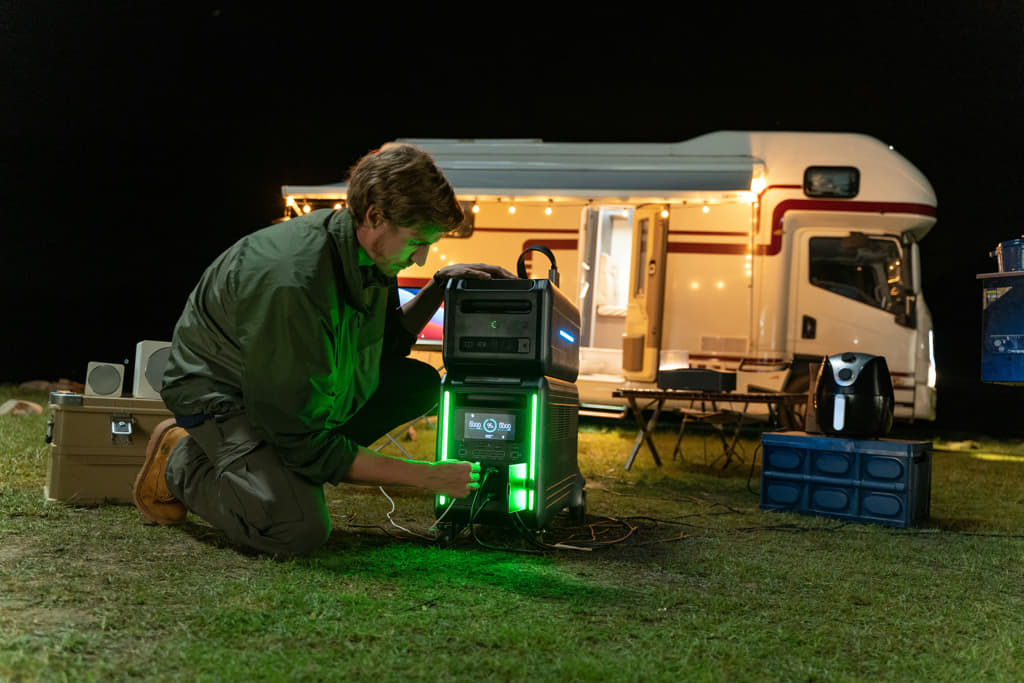
While generators can be lifesavers during power outages, certain common mistakes can hinder their performance and potentially cause safety hazards. These include overloading the generator, ignoring maintenance, and improper ventilation.
Overloading the Generator
Overloading a generator can damage both the generator and the appliances connected to it, including your refrigerator. This can also pose a fire hazard. To prevent overloads and overheating, read the generator’s instructions carefully and consider staggering the operation times of connected equipment.
Ensure that your generator provides sufficient wattage for your refrigerator’s starting watt requirements to avoid any damage.
Ignoring Maintenance
Just like any other equipment, generators require regular maintenance to perform efficiently and last longer. This includes checking oil levels and inspecting filters. Ignoring maintenance can lead to generators not starting, performing suboptimally, and increasing the risk of breakdowns, which is critical during power outages when powering refrigerators.
Make sure to inspect fluid levels, belts, hoses, connectors, exhaust system, battery, oil, control panel, and filters routinely.
Improper Ventilation
Finally, improper ventilation can lead to the buildup of harmful exhaust fumes and overheating, which can cause damage to the generator and pose fire hazards. Always operate your generator in a well-ventilated area away from windows, doors, and vents. If natural airflow is not sufficient, consider using forced air ventilation systems to maintain an adequate supply of fresh air to the generator.
Summary
In conclusion, choosing the right generator for your refrigerator involves understanding your refrigerator’s power needs, knowing the different types of generators available, and considering key features like generator size, fuel type, and noise level. Proper installation, load management, and generator safety are also crucial for efficient and safe operation. By avoiding common mistakes like overloading the generator, ignoring maintenance, and improper ventilation, you can ensure that your refrigerator continues to function effectively during power outages.
Frequently Asked Questions
How do I calculate the total power needs of my refrigerator?
To calculate the total power needs of your refrigerator, multiply the number of amps by the voltage of the outlet to get the average running watts, and then divide the refrigerator's wattage by three for a more realistic figure of actual running watts.
What are some types of generators suitable for refrigerators?
You can use inverter generators, portable generators, and battery generators to power your refrigerator. Consider these options based on your specific needs.
What key features should I consider when choosing a generator for my refrigerator?
When choosing a generator for your refrigerator, consider the generator size, fuel type, and noise level to ensure it meets your needs.
What are some common mistakes to avoid when using a generator for my refrigerator?
Avoid overloading the generator, ignoring maintenance, and providing improper ventilation to ensure safe and efficient use for your refrigerator.
How can I ensure safe operation of a generator?
To ensure safe operation of a generator, always operate it outdoors with proper ventilation, allow it to cool before refueling, and never plug it directly into home wiring.


Leave a comment